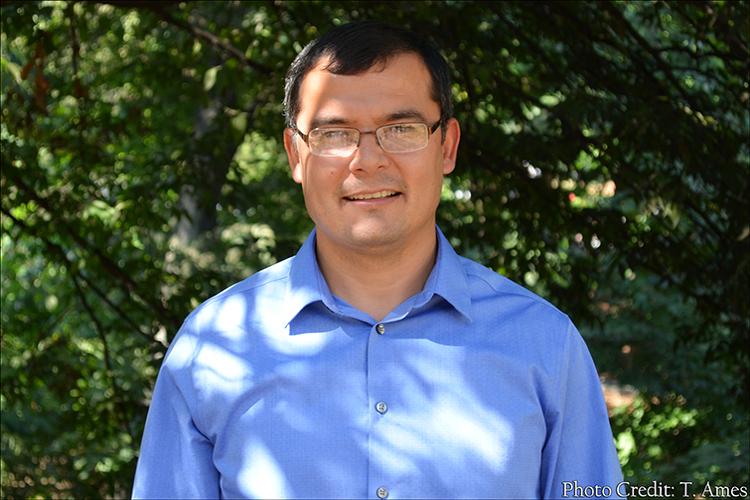TIJS Fellow defends dissertation virtually

On Thursday, July 23rd, Rahimjon Abdugafurov defended his dissertation via Zoom. “I was definitely expecting a face-to-face defense event,” says Abdugafurov. “Of course, I wanted to receive handshakes and hugs after my defense, but that did not happen. However, because my defense was held online, I was able to invite more people to participate. Not only scholars from the USA, but across the world, were able to join, listen, and send their thoughts. I think both versions, in-person and online, have their advantages and disadvantages.”
Hailing from Uzbekistan—one of the former Soviet countries in Central Asia—he received his undergraduate degree from Namangan State University, Uzbekistan. Abdugafurov chose Emory for his doctoral education based on the number of faculty members he could work with directly to complete a Ph.D. in Islamic Civilizations Studies and a Graduate Certificate in Jewish Studies from the Tam Institute.
"The focus of my dissertation is Islamic Religious Humanism - the study of human equality, freedom, and potential in the works of the fourteenth-century Sufi theologian and philosopher 'Abd al-Karim al-Jili. Jili believed that all human beings are equal, and free to choose and possess the same potential to achieve their goals regardless of their religious, social, and other characteristics. My dissertation contributes to a better understanding of Muslim relations with non-Muslims, especially with Christians and Jews," says Abdugafurov.
Abdugafurov wrote his master's thesis on Muslim views on Christianity and Judaism in Uzbekistan, stemming from his interest in the intellectual heritage of the Bukharan Jews, a Central Asian Jewish minority. While completing his doctorate he was able to explore areas in Islamic studies and Jewish studies that would not have otherwise been possible by taking courses on Maimonides (a medieval Jewish philosopher) and Judeo-Arabic.
During his time at Emory, Abdugafurov was also the recipient of a grant from TIJS to support his research on primary sources in Judeo-Tajik (a branch of Persian spoken by Bukharan Jews). This work culminated in his documentary project Bukharan Jews: Memories of a Disappearing Past, which presents stories from six elderly Bukharan Jews who currently reside either in New York City or in the city of Bukhara. After the collapse of the Soviet Union, most of the Bukharan Jews left Central Asia. As a result, the new generation of the Bukharan Jews, who now live in Europe, Israel, the USA, and other parts of the world, began to adopt new languages. "One of the factors that led me to produce this documentary was to contribute to the preservation of the Bukharan Jewish language as well as the cultural and intellectual heritage that developed over centuries in Central Asia,” writes Abdugafurov.
Regarding his future, Abdugafurov has two concrete goals for his academic career with direct relevance to Jewish Studies. "I would like to explore the influence of Moses Maimonides on Islamic Thought, particularly Sufism, and I would like to conduct more research on the intellectual heritage of Bukhran Jewish thinkers of the pre-modern period."
Abdugafurov would like to thank Professors Eric Goldstein, Miriam Udel, David Blumenthal, Don Seeman, and Program Coordinator Malory Mibab for their leadership and support.
He will begin his post-doctoral work in Islamic Legal Studies at Emory School of Law in August.